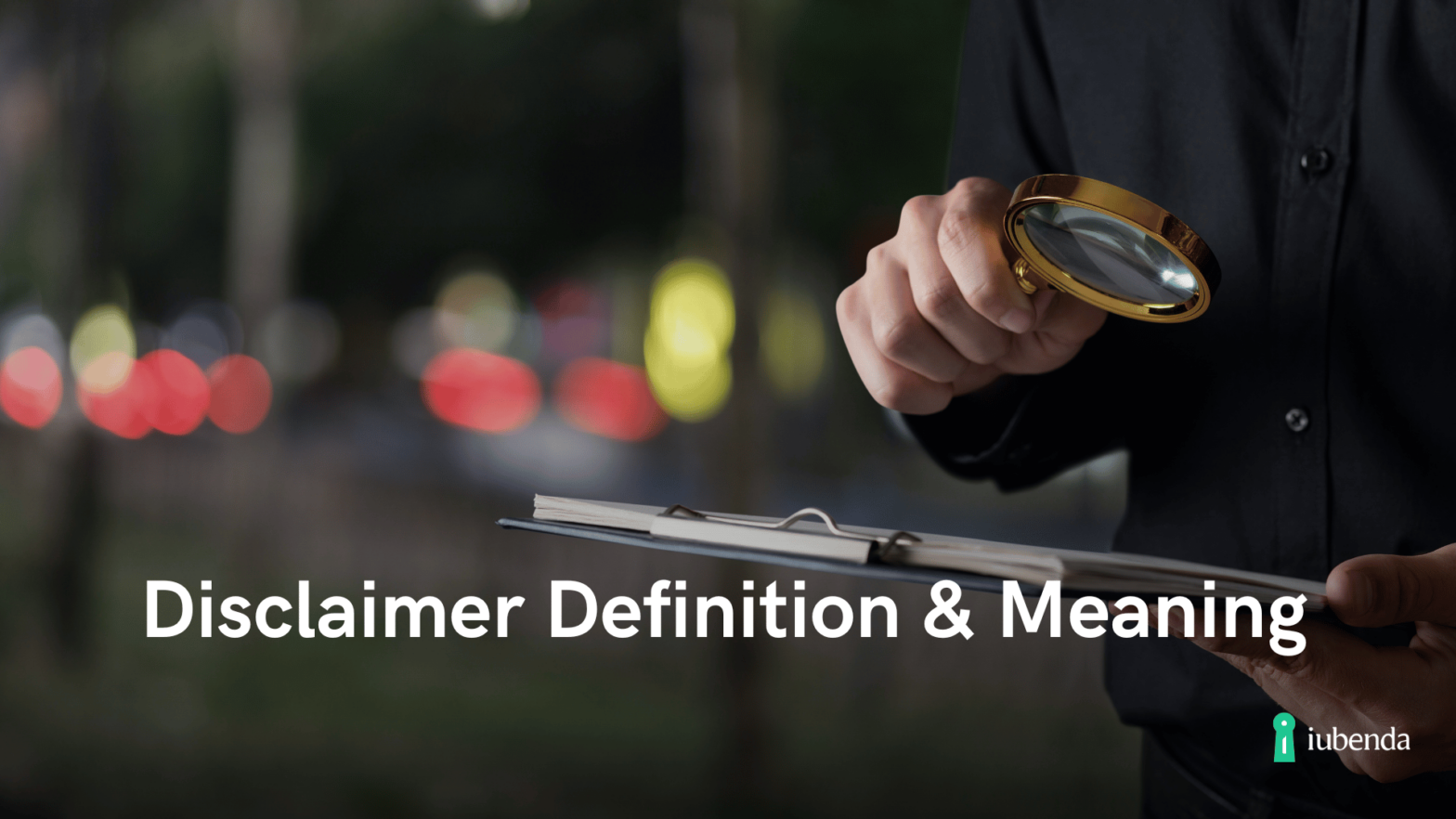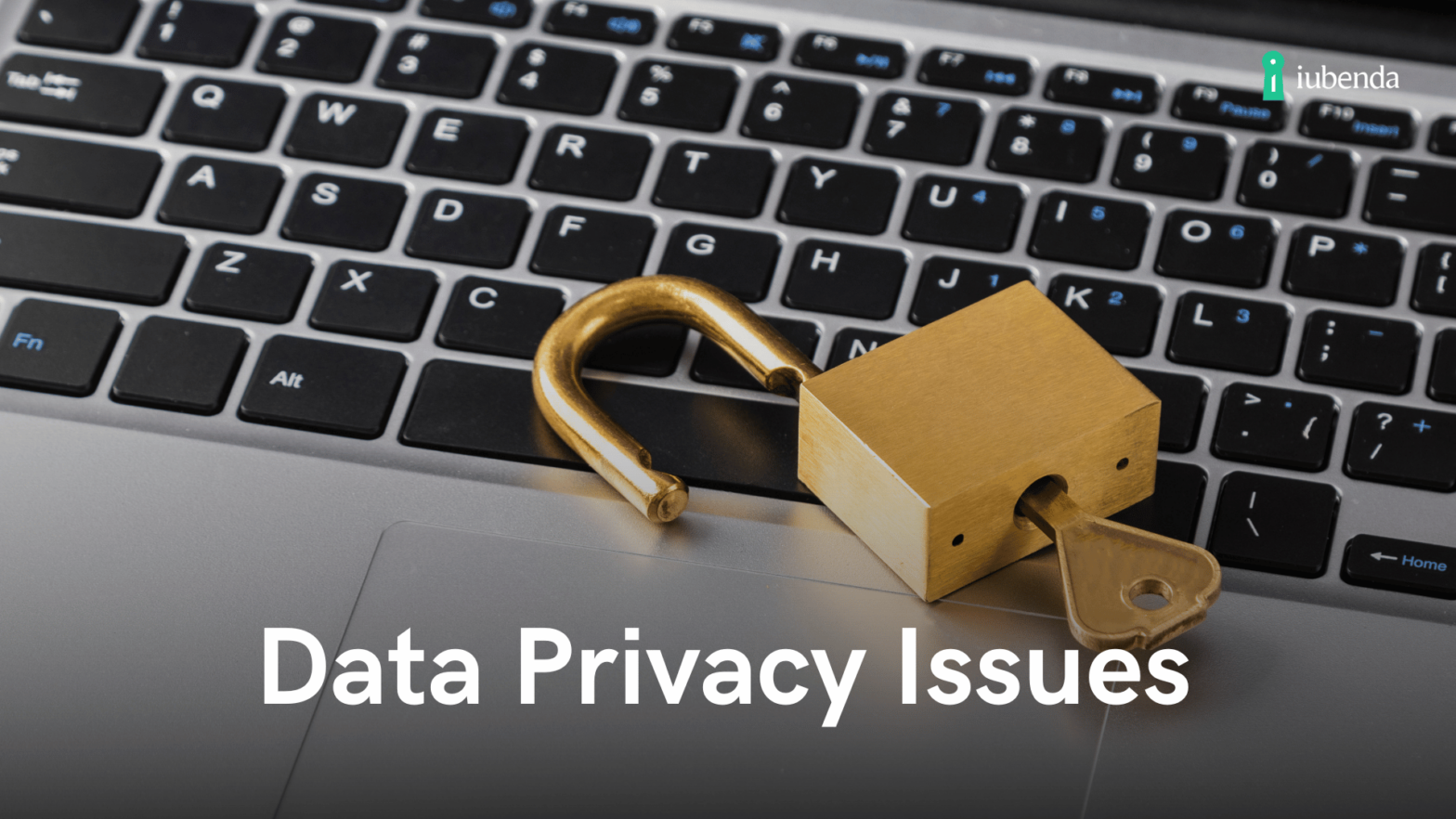Help Articles
-

Disclaimer Definition & Meaning
What does “disclaimer” mean? According to its definition, a disclaimer is a statement that helps businesses and professionals limit their liabilities. Disclaimers are usually used to inform people that the person or organization providing information or service is not liable for any consequences or damages that may come from it. Disclaimers can act as your
-
iubenda, the smart privacy and legal compliance solution for your website
iubenda, the smart privacy and legal compliance solution for your website Why settle for the basics when you can have so much more? With iubenda, you get a comprehensive solution that extends well beyond simple legal documents. Let’s dive into why iubenda is the smarter choice for your website. Try iubenda now Get started with
-
The New Privacy and Cookie Policies: Refined, Simplified, and User-Friendly
At iubenda, we’re always committed to make legal compliance clear, accessible, and transparent for both businesses and their users. As part of our ongoing mission to improve the user experience, we’re excited to introduce the redesigned Privacy and Cookie Policies—a major update that transforms how legal documents are structured, presented, and interacted with. This new
-
Purchase or upgrade your iubenda plan and get 80% back
Purchase or upgrade your iubenda plan and get 80% back Offer ends on December 31st Get started now Trusted by over 130,000 clients in 100+ countries Three simple steps to your 80% cashback STEP 1 Choose your plan Choose your premium iubenda plan to unlock additional benefits STEP 2 Fill out the form Fill out
-

Top 3 Data Privacy Issues and How To Avoid Them
According to Pew Research Center, around 70% of U.S. adults are concerned about how their data is used. Now more than ever, people care about their privacy and often act to protect their data from misuse. As a business, avoiding data privacy issues can ensure you have a better relationship with your users, who will
-
Legal Partner Kit
The Legal Partner Kit helps you to inform your customers about your ability to support them in adapting their sites/apps to the regulations also from a technical point of view and provides you with useful information on how to best offer and resell iubenda’s solutions. Below you can find the complete list of contents available
-
iubenda app for Duda | All-in-one Compliance for GDPR / CCPA Cookie Consent, and more
The iubenda app for Duda is an all-in-one, extremely easy to use 360° compliance solution, with text crafted by actual lawyers, that quickly scans your site and auto-configures to match your specific setup. The app supports laws like GDPR (DSGVO, RGPD), UK-GDPR, ePrivacy, LGPD, CPRA, CCPA, CalOPPA, PECR, and more. It also works smoothly with
-
First-Party vs Third-Party Cookies: What’s the Difference?
Cookies are small text files that websites install on users’ devices for different purposes. You can think of them as a website’s memory: every time you go back to a website you’ve already visited, cookies remember your preferences. But what’s the difference between first-party vs third-party cookies? In short What are first-party cookies? What is
-
What is COPPA? An In-Depth Guide to the Children’s Online Privacy Protection Act
What is COPPA? COPPA is an abbreviation for the Children’s Online Privacy Protection Act,enacted by Congress in 1998. The primary goal of COPPA is to protect children’s privacy online. The Act gives parents control over what information websites collect and process about their children. This guide will explain what you need to know about COPPA,
-
Nebraska Data Privacy Act (NDPA) Overview
Effective Date: January 1, 2025 Nebraska is set to introduce significant data privacy protections for its residents with the enactment of the Nebraska Data Privacy Act (NDPA), effective January 1, 2025. This legislation is designed to give Nebraska residents control over their personal data while outlining specific obligations for businesses that handle consumer data. The NDPA